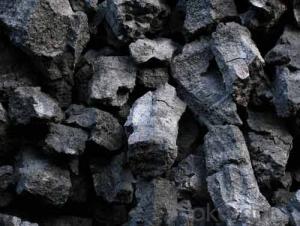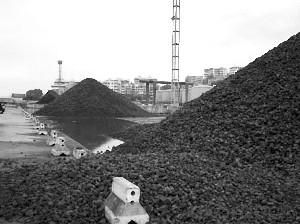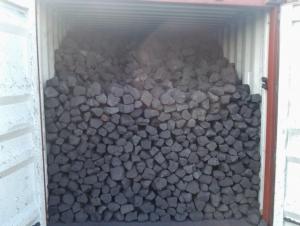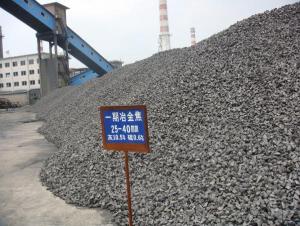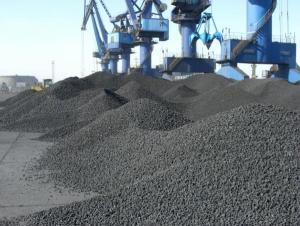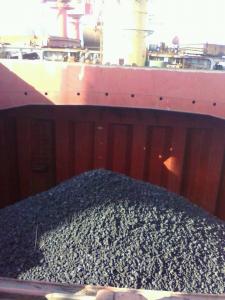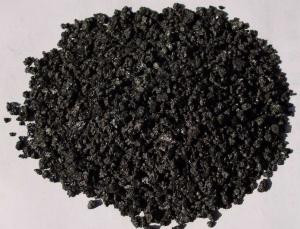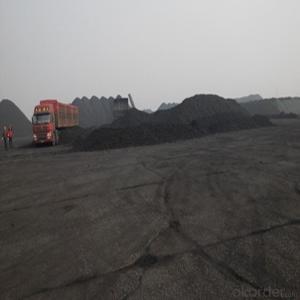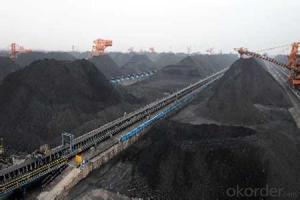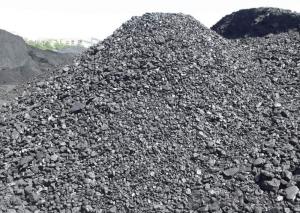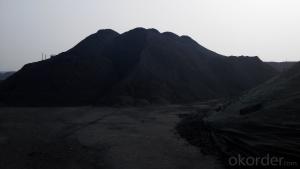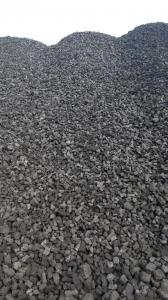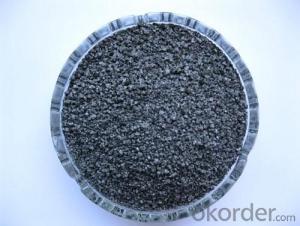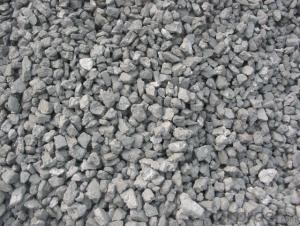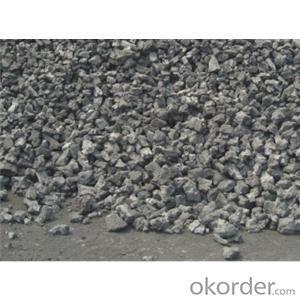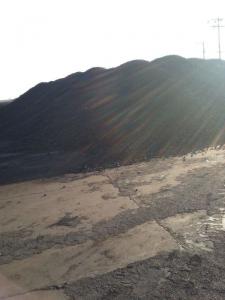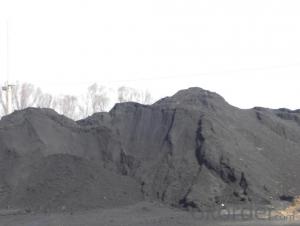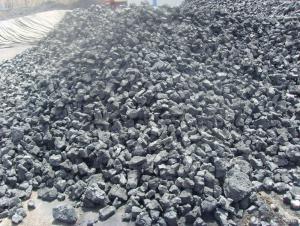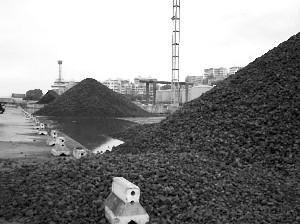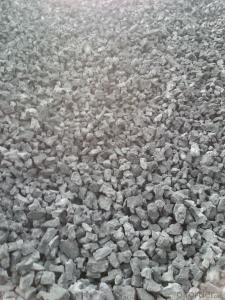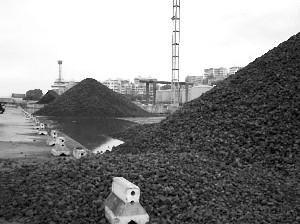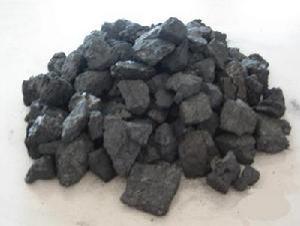The NUT Coke of Low Phosphorus
- Loading Port:
- Tianjin
- Payment Terms:
- TT OR LC
- Min Order Qty:
- 100 m.t.
- Supply Capability:
- 3000 m.t./month
OKorder Service Pledge
OKorder Financial Service
You Might Also Like
1. Structure of The NUT Coke of Low Phosphorus Description:
Coke is made by high temperature metallurgical coke for blast furnace smelting, casting and gasification. Occurring in the process of coking after recovery and purification of coke oven gas is a high calorific value of fuel, is an important industrial raw material in organic synthesis.
Coke is mainly used for blast furnace ironmaking and used for copper, lead, zinc, titanium, antimony, mercury and other non-ferrous metal smelting of blast furnace, reducing agent, compound and the function of stock column frame.
Blast furnace with Coke instead of charcoal, which laid a foundation for the large-scale of modern blast furnace, is a major milestone in the history of metallurgy.
2. Main Features of The NUT Coke of Low Phosphorus:
• Quality assurance
• Mutual benefit
• Preferential price
• Various choice
3. The NUT Coke of Low Phosphorus Images:
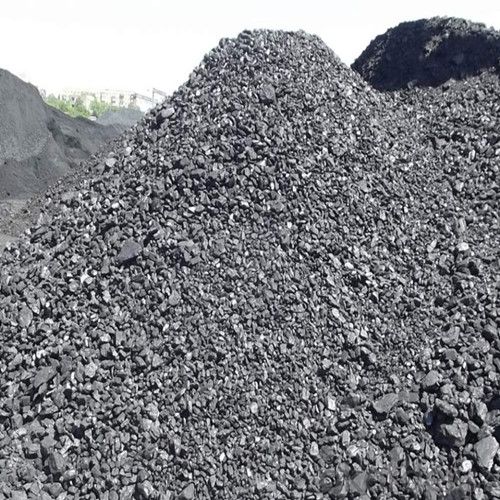
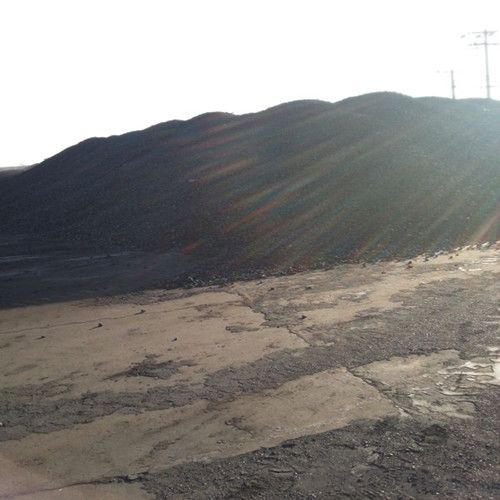
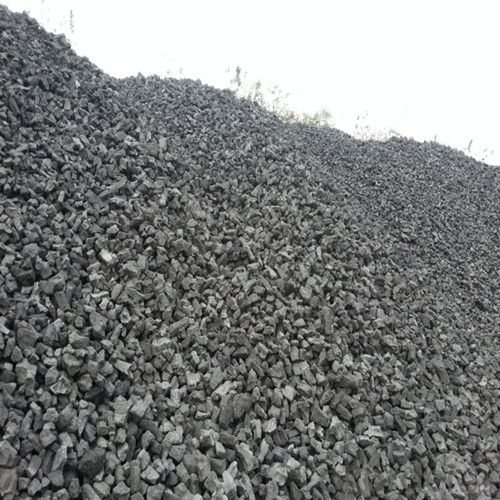
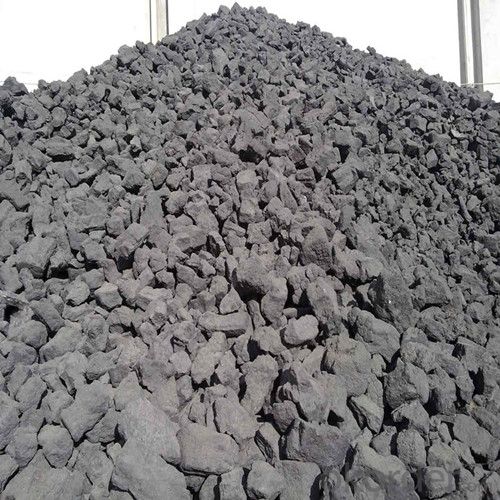
4. The NUT Coke of Low Phosphorus Specification:
Quality | Quality guaranteed | Rejection |
Moisture (As receive basis) | 7% max | -- |
Ash (dry basis) | 13.5% max | Above 14% |
Volatile Matter (dry basis) | 1.5% max | Above 1.9% |
Sulphur (dry basis) | 1.0% max | Above 1.3% |
Phosphorus | 0.018%max | Above 0.022% |
Size 20—50mm | 90%min | |
-20mm | 5%max | Above 10% |
+50mm | 5%max | Above 10% |
5. FAQ
We have organized several common questions for our clients,may help you sincerely:
1) How to guarantee the quality of the products?
We have established the international advanced quality management system,every link from raw material to final product we have strict quality test;We resolutely put an end to unqualified products flowing into the market. At the same time, we will provide necessary follow-up service assurance.
2) What are coke's main physical properties?
The average heat capacity is 0.808 kj/(KGK) (100 ℃), 1.465 kj/(KGK) (1000 ℃)
Thermal conductivity is 2.64 kj/(MHK) (room temperature), 6.91 kj/(MHK) (900 ℃);
Ignition temperature (air) is 450-650 ℃.
3) How about your company?
Our company began to export coke when China cancelled 40% of coke export tariffs and quotas on January 1, 2013. We export many kinds of coke, such as CSR60 % and CSR 62% metallurgical coke (met coke), the NUT coke of 20 to 50 mm, coke breeze of 3 to 6 mm, and so on.
- Q: What is the concept, relationship and difference between coke and coke? The main difference and contact, thank you
- Formed coke is a product obtained through several steps:(1) environmental protection continuous high efficiency carbonization furnace(2) the use of anthracite powder to produce plastic molding coke and supporting technology(3) a new type of environmentally friendly carbonization carbonization furnace without three wastes discharge.(4) hydraulic press
- Q: What is the use of petroleum coke
- According to the quality can be divided into two kinds of primary and qualified products. Qualified products are divided into six grades. Used in the manufacture of electrodes, calcium carbide, corundum and so on and used as a filling tank, also used as insulating materials and fuel, etc..
- Q: China's coke iron smelting began in what time?
- Han also invented the "fried steel law", that is, the use of pig iron "fried" mature iron or steel of the new process, the product is called steel. At the same time, the rise of "100 steelmaking" technology. The Eastern Han Dynasty (AD 25 ~ 220), when the emperor of the Ming Dynasty, invented the hydraulic blast furnace, that is, "water discharge". The invention of ancient water row in China, about 1100 years earlier than europe. After the Han Dynasty, the method of steel. "Qi Shu Qi, even referred to as" places "big steel", later known as the filling steel, also known as steel group. This is another important achievement of the ancient steelmaking technology in china. According to the "Encyclopedia of" records: Chinese is the earliest use of coal iron country, the Han Dynasty have been tried, song and Yuan dynasties have been popularized. To the Ming Dynasty (AD 1368 ~ 1644) has been able to use coke smelting pig iron.
- Q: I don't understand. With coke, then the rest of the coke, they are selling it?
- According to the use of coal can be divided into: injection coal, coal, coal coking coal can be divided into: lean coal, coking coal, gas coal, fat coal, lignite in five categories. Coking coal is used to refine coke. The power plant's coal coal power coal can also be said that under normal circumstances, can not be used for coking coal can be used to make electricity.
- Q: Can the sulfur content of coke affect the casting process of nodular cast iron at 0.65?
- If the control is not good, the manganese content in the molten iron can be increased by increasing the reagent
- Q: How to remove the bottom of coke steel
- After high temperature sintering, and carbonization of things, glued to the pot, often with chemical methods.The most effective way to do this is by hand:Soak in hot water for a few hours (or a day and night).
- Q: What is the essential difference between coal and coke?
- Coke]Coke is bituminous coal in the absence of air is heated to 950-1050 DEG C, after drying, pyrolysis, melting, bonding, curing and contraction of the final stage is made, the process is called high temperature coking (high temperature carbonization). Coke obtained from high temperature coking for blast furnace smelting, casting and gasification. Coke oven gas produced in the process of coking and recovery is not only a high calorific value of fuel, but also an important industrial raw material for organic synthesis.Coke is mainly used in blast furnace ironmaking and smelting of non-ferrous metals such as copper, lead, zinc, titanium, antimony, mercury and so on. The use of coke instead of charcoal in the blast furnace has laid the foundation for the large-scale development of modern blast furnaces and is a major milestone in the history of metallurgy. In order to achieve better technical and economic indexes of blast furnace operation, the coke (metallurgical coke) must have proper chemical and physical properties. In addition to a large number of coke used in iron smelting and non-ferrous metal smelting (metallurgical coke), but also for casting, chemical, calcium carbide and iron alloy, the quality requirements are different. Such as foundry coke, generally require large size, low porosity, high fixed carbon and low sulfur; chemical gasification, strict requirements for strength, but requires good response, high ash melting point; calcium carbide and coke production requirements to improve the fixed carbon content.
- Q: The difference between coke and coal
- This is the nature of coal from the formation of coal is coal, and coal deep-processing products
- Q: What is the difference between coke and coking coal
- Coking coal is a kind of bituminous coal with a high degree of deterioration, and the thermal stability of the resultant colloid is good when the coke is produced separately. The block size of the coke is large, the crack is small and the strength is high
- Q: How much coke is needed for a ton of iron
- 1 tons of iron: iron ore + + coke 340kg + pulverized coal injection 130kg,The process of extracting iron from iron containing minerals, mainly iron oxides, is mainly composed of blast furnace, direct reduction, smelting reduction and plasma method. From the perspective of ironmaking is metallurgy, iron rust, inverse behavior gradually mineralized, simple, pure iron reduction from iron compounds. Pure iron is not common in actual production. More iron carbon alloy.
Send your message to us
The NUT Coke of Low Phosphorus
- Loading Port:
- Tianjin
- Payment Terms:
- TT OR LC
- Min Order Qty:
- 100 m.t.
- Supply Capability:
- 3000 m.t./month
OKorder Service Pledge
OKorder Financial Service
Similar products
Hot products
Hot Searches
Related keywords
